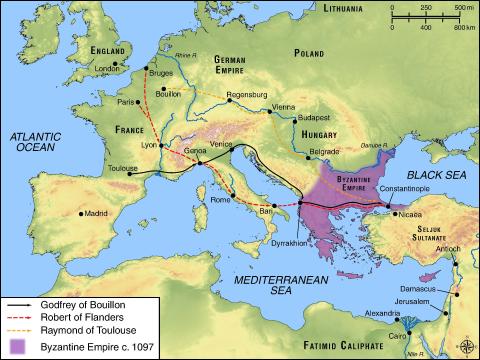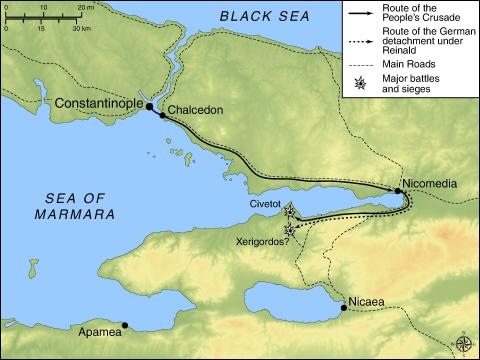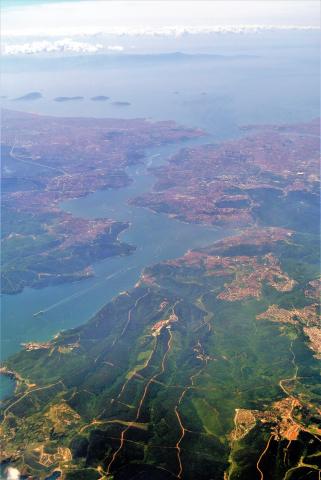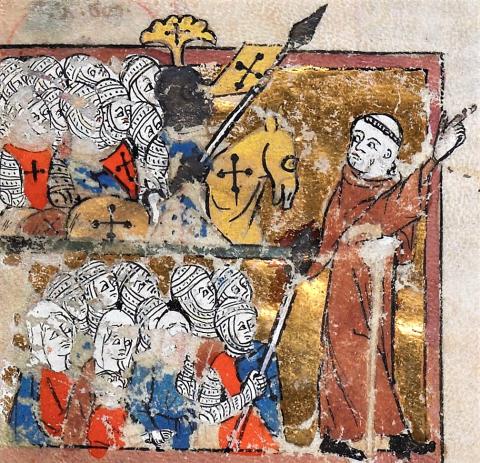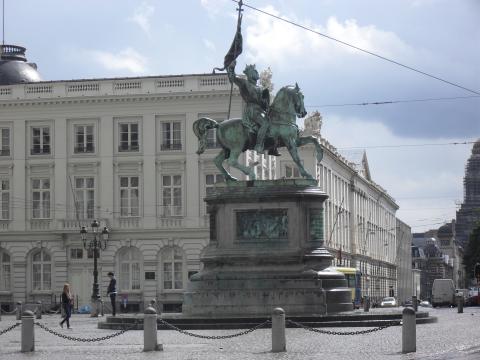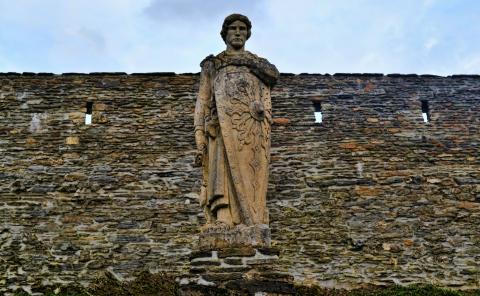[1.2.1] Fēcērunt dēnique Gallī trēs partēs. Vna pars Francōrum in Hungāriae intrāvit regiōnem, scīlicet Petrus Heremīta, et dux Godefridus, et Balduīnus frāter eius, et Balduīnus comes dē Monte. Istī potentissimī mīlitēs et aliī plūrēs quōs ignōrō vēnērunt per viam quam iamdūdum Karolus Magnus mīrificus rēx Franciae aptārī fēcit usque Cōnstantīnopolim.
[1.2.2] Petrus vērō suprādictus prīmus vēnit Cōnstantīnopolim in kalendīs Augustī et cum eō maxima gēns Alamannōrum. Illīc invēnit Lombardōs et Longobardōs et aliōs plūrēs congregātōs, quibus imperātor iusserat darī mercātum, sīcuti erat in cīvitāte, dīxitque illīs “Nōlīte trānsmeāre Brāchium, dōnec veniat maxima Chrīstiānōrum virtūs, quoniam vōs tantī nōn estis, ut cum Turcīs prēliārī valeātis.” Ipsīque Chrīstiānī nēquiter dēdūcēbant sē, quia palātia urbis sternēbant et ārdēbant, et auferēbant plumbum quō ecclēsiae erant coopertae et vēndēbant Grecīs. Vnde imperātor īrātus est iussitque eōs trānsmeāre Brāchium. Postquam trānsfretāvērunt, nōn cessābant agere omnia mala, combūrentēs et dēvastantēs domōs et ecclēsiās. Tandem pervēnērunt Nīcomēdīam, ubi dīvīsī sunt Lombardī et Longobardī et Alamannī ā Francīs, quia Francī tumēbant superbiā. Ēlēgērunt Lombardī et Longobardī seniōrem super sē, cui nōmen Rainōldus, Alamannī similiter.

